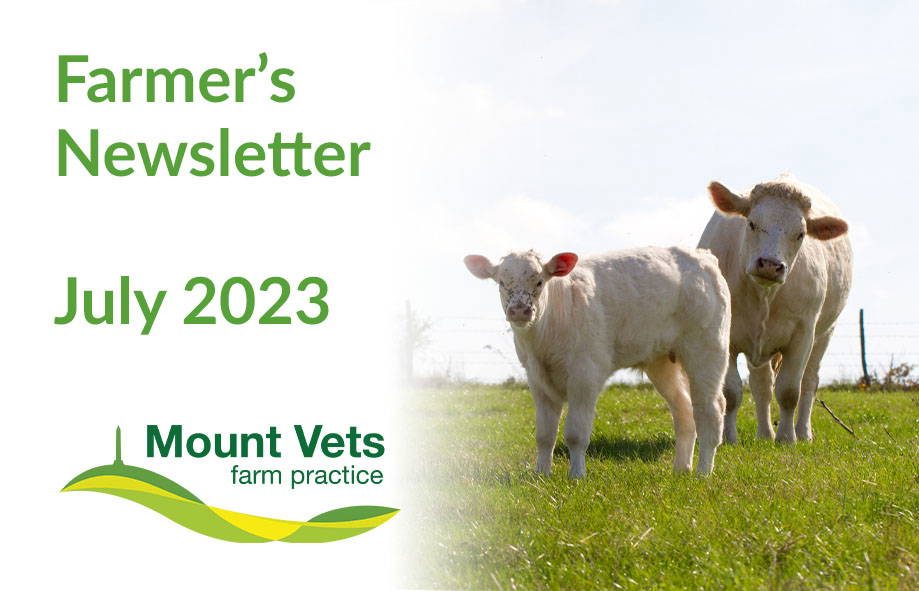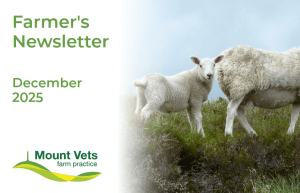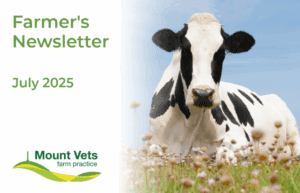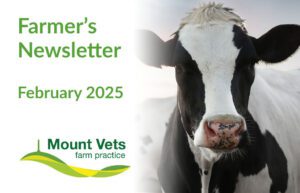July 2023
Here is the latest from our farm team at Mount Vets. If you would like any further advice or would like us to cover something in the next newsletter, please call us on 01823 662286 or contact us here.
We want to hear your feedback… Leave us a review!
Our new website is now live. We hope you enjoy an easier navigation through the pages and have had the opportunity to look at the new information that we have added. We value your feedback and comments and would appreciate if you could take the time to leave us a review! Please follow the link to share your thoughts. https://g.page/r/CTSyP_UXvSPIEAI/reviewMid Devon Show 22nd July 2023
Despite the wet weather it was great to see lots of you at the Mid Devon Show this year! We put a lot of effort into setting the tent up and so it is very rewarding that so many of you made the effort to drop in and see us even though it was a very soggy day. We were glad to be able to provide hospitality to you all as a way of showing our gratitude for all the hard work you do. Thank you and we hope to see you again next year!
Upcoming courses
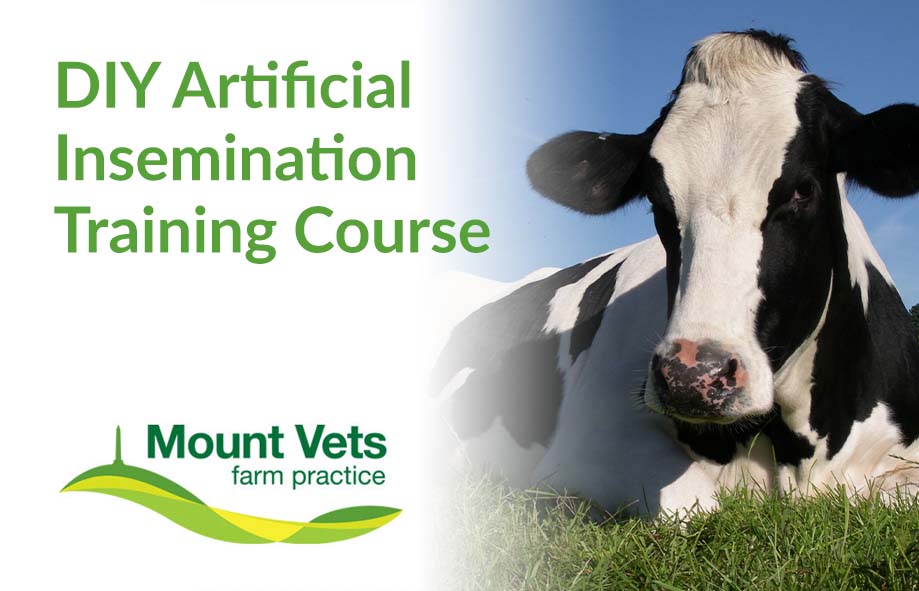
DIY Artificial Insemination
23rd, 24th, 26th & 27th October 2023
Our next 4-day DIY AI course will run on 23rd, 24th, 26th & 27th October 2023.
This DEFRA approved course is aimed at anyone who has no previous experience in the artificial insemination of cows. The 4-day course is run by our experienced farm vet Rob Mangham and is full of theory and practical sessions to make sure you leave feeling confident and safe in all aspects of AI.
The cost of the course is £500 + VAT, with a £50+VAT deposit to secure your space. (Deposit will be taken off final amount)
Please ring the practice to book your place on any of our courses on 01823 662286 or email farm@mountvets.com
Johnes Disease in Cattle – Part 2
Last month we talked about what is Johnes and why we should be engaging with Johnes control and eradication. This month’s focus will be on reducing the risk of Johnes entering a herd and the different testing methods we have at our disposal.
It is almost impossible to completely eradicate the risk of infectious disease in the real world, therefore reducing risk is the name of the game. It can be helpful for us to use a Johnes risk assessment questionnaire to get a feel of the main areas of the farm to focus on. We can broadly split this into two categories: Biosecurity (preventing disease entering a herd) and Biocontainment (reducing the spread of a disease through a herd).
Biosecurity
Risks of entry:
Major | Minor |
| Purchased stock | Waterways |
| Imported slurry | Sheep |
| Imported colostrum | Wildlife |
Purchased stock:
Bought in animals provide the biggest risk to new infection by far. When buying in animals, consider:
- Buying from low-risk farms (long history of negative testing and control) or CHECS accredited herds
- Reducing the number of herds purchased from, there is increased risk when buying from many different sources or from herds where no history is known.
- The number of replacement animals being bought, the more animals the higher the risk. A farm that buys a single bull every two years has much lower risk than a farm that replaces 5% of the herd per year.
- How often purchases occur, the more often the higher the risk.
- We often hear that farms are closed but in reality, not many truly are, there is usually the odd animal that comes in from time to time. All potentially posing a risk to the herd.
- Don’t forget that young calves and bulls are potential sources of infection, often we focus on adult milking cows.
Testing
When testing for Johnes, we can use blood, milk or dung depending on what we are trying to achieve with our testing. With blood and milk, we are usually testing for Johnes Antibodies which indicate exposure. Dung testing however is more focused on testing for the bacteria itself which can help us confirm the presence of disease.
In general, we rely on blood and milk testing when controlling Johnes, especially milk testing in dairy herds due to the ease of adding it onto milk recording.
Herd Status
When establishing whether a herd is infected with Johnes, we can use three different testing strategies:
- Cull cow screen
- Targeted 30 cow screen.
- Whole herd screen
- Cull cows that have issues with mastitis, lameness, low milk yields or poor fertility could be infected with Johnes. When a batch of these animals are identified, they could be tested using either milk or blood for antibody.
- Targeted 30 cow screen involves identifying cows that are most likely to be infected with Johnes (mastitis, lameness, low milk yields or poor fertility). Blood/milk antibody testing can then be used, often milk recording companies can pick out these animals automatically.
- Whole herd screen – this is the most accurate method of determining herd status and can be done through milk recording.
One of the issues with Johnes testing is the relatively poor sensitivity of the tests we have available. Sensitivity is a measure of how much we can trust the negative results of a test. This means that a large proportion of infected animals may not show up on testing especially in the early stages of infection. Therefore, it is hard to say whether a herd is free from Johnes based on just one test. Multiple negative tests over a period can increase our confidence.
Slurry:
- Purchasing slurry from other farms should be avoided as a priority. As well as potentially carrying Johnes, there is also good evidence that bovine TB can be spread this way too.
- Potentially more likely is the use of contractors to spread slurry. Using reputable contractors that thoroughly clean their equipment between farms is advised.
- Avoiding spreading slurry on grazing ground that is going to be used to youngstock is a good idea if possible.
Colostrum:
- Much like slurry, purchasing colostrum from other farms should be avoided where possible.
- If absolutely necessary, buy from low-risk herds and think about pasteurising before feeding to calves.
- Storing colostrum from low-risk cows within the herd is preferable.
Waterways:
- Waterways can be a source of infection if they have run through an area where infected slurry has been spread/run off.
- Youngstock are the most vulnerable so consider fencing off natural water courses in these fields.
Other animals:
- Sheep can be infected with Johnes and the disease behaves in a similar way. It appears as a chronic wasting disease like in cattle, but sheep tend not to have the associated scour. They could be a source of infection to cattle especially youngstock if there is co-grazing/overwintering of sheep on cattle pasture.
- Rabbits and deer can also carry Johnes, this may be something to look into if a farm is really struggling with Johnes control.
Testing for control
Testing also forms an integral part of the control strategy when trying to eradicate Johnes from a herd. This usually takes the form of regular individual testing through milk recording. Particular times to focus on are drying off and before breeding.
Drying off:
- Testing at drying off may identify infected cows, we can then mark these cows as high-risk animals and manage them differently when they are due to calve. This will be covered in further detail in next month’s newsletter.
Before breeding:
- Testing before breeding allows decisions to be made with regards to the future of the cow. If they are positive at this stage, we can make the decision to not keep replacement animals from her. Breeding to beef instead is a good option. Sometimes we may advise culling if the results are particularly high.
Quarterly testing is the gold standard number per year, but at a minimum before drying off and breeding are the two target times to test.
Summary
- There are multiple ways a farm may become infected with Johnes, the most common being purchased animals.
- Imported slurry and colostrum, waterways, and other animals also pose a risk to a smaller degree.
- We can use milk, blood, and dung to test for Johnes.
- Whole herd screens, cull cow screens, and target 30 cow screens can help determine the Johnes status of herd.
- Drying off and before breeding are the two most important times to test cows to determine what management decisions are made next.
- Quarterly individual testing is the most effective testing method when aiming to eradicate Johnes.
Five Years of Heifer Pre-breeding Exams
As part of a recent Beef Health Group meeting, I have looked back over five years’ worth of data from performing Heifer Pre-Breeding Exams (HPBEs) and thought it might be of interest to our newsletter-reading public.
For those who don’t know, we perform HPBEs on replacement suckler heifers at 12-15 months old, usually as a selection and clearing process for breeding in time to calve at around 2 years old. This can also be done for heifers calving down for the first time later in their life but is still best performed at 12-15 months old.
Heifers are first scanned to assess the maturity of their reproductive tract and scored according to the likelihood of the heifer already having hit puberty. Heifers should hit puberty by 50% of their mature liveweight and those that have not reached this milestone by 12-15 months old should not be retained for breeding as they are likely carrying poorer fertility genetics.
We then assess the shape of the pelvic inlet. A normal pelvic inlet should be round to slightly rectangular in shape. Some pelvises can be “V”, Heart or Keyhole shaped which can all significantly reduce the area within the birth canal and make vaginal delivery considerably more difficult. We fail more heifers for unusual pelvic inlet shapes than we do for small pelvic areas.
Finally, we use a device called a pelvimeter to take a horizontal and a vertical measurement of the pelvic inlet, multiplying these together gives us a pelvic area for that animal. We can even do a bit of maths to scale these heifers up or down to standardise all heifers as if they had been measured on day 365 of their life for more direct comparison. Heifers that are smaller than our threshold are failed. It may also be wise to avoid breeding from the biggest 10% of heifers as well, as they may throw calves with wider hips as well which can lead to calving difficulties further down the line.
This is also a good opportunity to weigh heifers to ensure they are likely to meet their liveweight target of 65% of expected mature weight by breeding. We can also assess temperament, as wild heifers may not be best suited to keeping as replacements if avoidable. Disease testing, for BVD in particular, can be performed as they’re coming through the crush anyway and this is a good opportunity to vaccinate them as well.
In 5 years, assessing 106 heifers across 5 different farms: 18% of these heifers were failed. 42% failed for an immature reproductive tract, 26% failed for an unusual pelvic inlet shape, 16% failed for a small pelvic area and a further 16% failed for more than one reason.
The Animal Health and Welfare funding is available for trying out this service if you are interested!
Nasal Bots
Nasal bots are the larvae of the fly Oestrus ovis, the first hatches of which will be leaving their hosts at this time of year (July to August). The flies are highly influenced by warm weather, and considering the past couple of months it may be worth keeping watch as our warmer autumns are set to suit this parasite.
Adult flies squirt 2-20 of the first stage larvae into the nostrils of sheep. From here they crawl up the nostrils, into the sinuses and feed via hooked mouthparts until fully developed. This development time can be highly variable from 6 weeks to 10 months. Any larvae still in the host will hibernate over winter and stay within the sinuses of the host until next spring, giving rise to an early hatch of adult flies.
As you might well imagine, having a 30mm larvae in your nose and sinus would be very irritating indeed! Sheep showing signs such as head shaking or nose rubbing should be suffering from nasal bots. The other thing to be cautious of with sheep showing behaviours such as these this time of year is of course flystrike. More specific clinical signs of nasal bots are nasal discharge and sneezing. Sometimes the sheep present as a pneumonia case that won’t clear up despite appropriate treatment. Larvae can on occasions cross over the nasal connection to the brain cavity, causing neurological symptoms such as circling, wobbly gait and head pressing, but thankfully this is rare!
Treatment should only be based on clinical signs, as unfortunately the only option is macrocyclic lactones (injectable clear wormers). So, we need to be careful when using these as we don’t want to exacerbate any gut worm resistance. If you do have a suspected case, then please do give us a call so we can discuss appropriate treatment.
Have a question about any of the topics covered in this newsletter?
If you need any assistance with the topics covered in this newsletter, please do not hesitate to get in touch with our experienced farm vets who will be able to help. Call 01823 662286, or contact us here.
